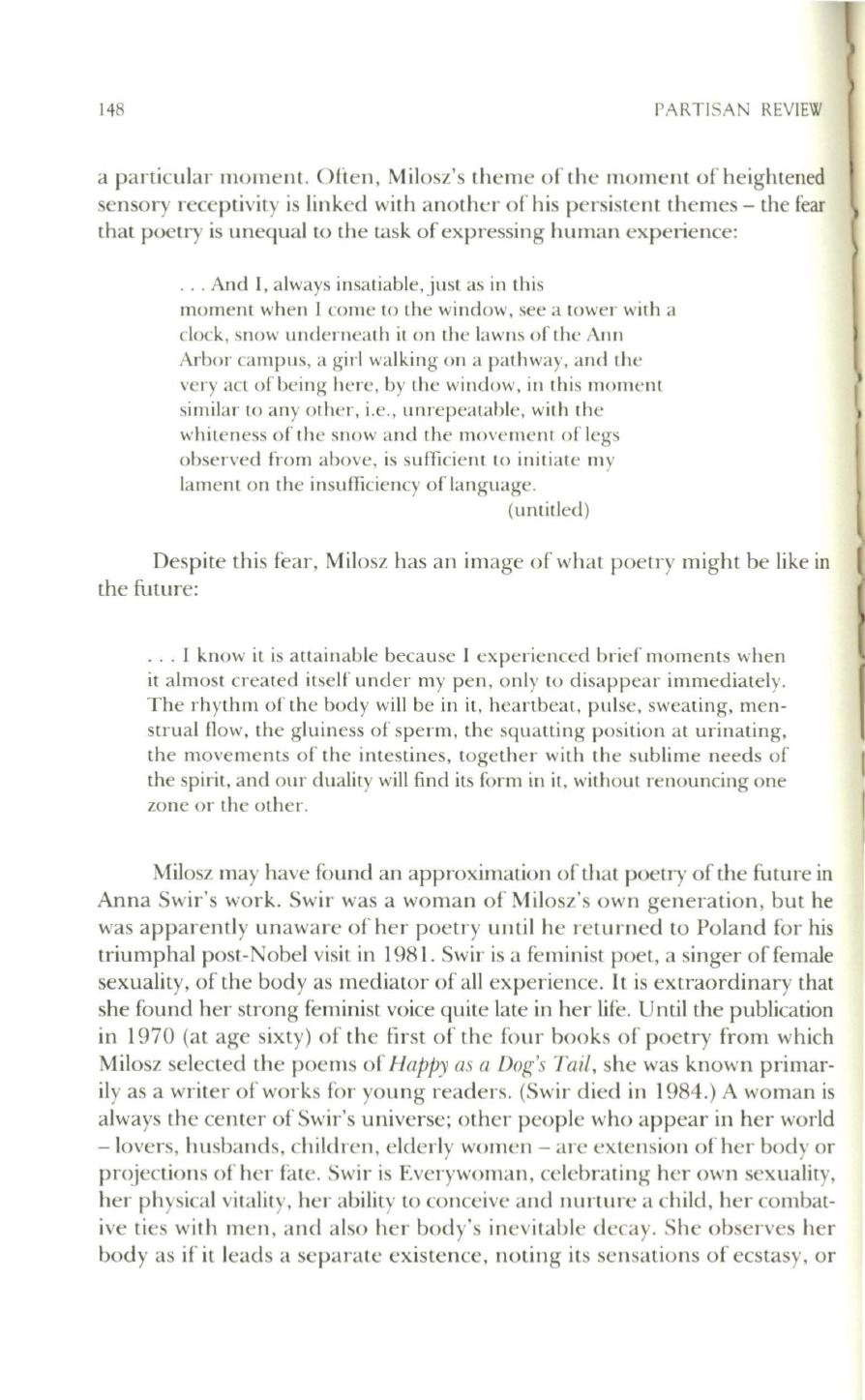
148
PARTISAN REVIEW
a particular moment. Otten, Milosz's theme of the moment of heightened
sensory receptivity is linked with another of his persistent themes - the fear
that poetry is unequal
to
the task of expressing human experience:
... And 1, always insatiable, just as in this
moment when
I
come to the window, see a tower with a
clock, snow underneath it on the lawns of thc Ann
Arbor campus, a girl walking on a pathway, and the
vCI'y act of being here, by the window, in this moment
similar to any other, i.e., unrepeatable, with the
whiteness of
t
he snow and the movement oflegs
obsel'ved from above, is sufficient to initiate my
lament on the insufficiency of language.
(untitled)
Despite this fear, Milosz has an image of what poetry might be like in
the fltture:
... I
know it is attainable because
I
experienced brief moments when
it almost created itself under my pen, only
LO
disappear immediately.
The rhythm of the body will be in it, heartbeat, pulse, sweating, men–
strual flow, the gluiness of sperm, the squatting position at urinating,
the movements of the intestines, together with the sublime needs of
the spirit, and our duality will find its form in it, without renouncing one
zone or the other.
Milosz may have found an approximation of that poetry ofthe future in
Anna Swir's work. Swir was a woman of Milosz's own generation, but he
was apparently unaware of her poetry until he returned to Poland for his
triumphal post-Nobel visit in 1981. Swir is a feminist poet, a singer of female
sexuality, of the body as mediator of all experience. It is extraordinary that
she found her strong feminist voice quite late in her
life.
Until the publication
in 1970 (at age sixty) of the first of the four books of poetry from which
Milosz selected the poems of
Happy as a Dog's Tail,
she was known primar–
ily as a writer of works for young readers. (Swir died in 1984.) A woman is
always the center of Swir's universe; other people who appear in her world
-lovers, husbands, children, elderly women - are extension of her body or
projections of her fate. Swir is Everywoman, celebrating her own sexuality,
her physical vitality, her ability to conceive and nurture a child, her combat–
ive ties with men, and also her body's inevitable decay. She observes her
body as if it leads a separate existence, noting its sensations of ecstasy, or
I
I
I


